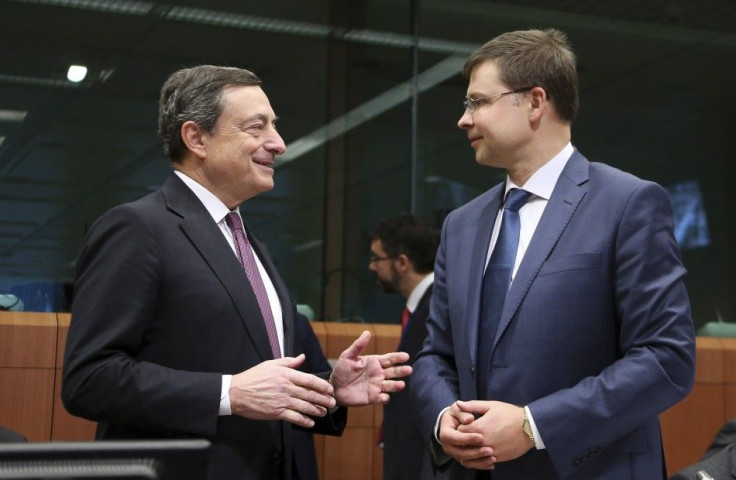Investors Weigh Risk Of Deflation As European Central Bank Considers Options--Report

The European Central Bank is reportedly making preparations to meet the challenges the region faces in 2015. The current global scenario has falling oil prices that have increased the risk of Europe going into a deflationary phase. The report comes at a time when many other economies are considering economic stimulus packages to ward off a possible recession.
According to a report by Bloomberg, the president of the European Central Bank spoke to the German newspaper Handelsblatt about the risks of deflation in the region. According to the report, the bank may have to step in if the governments in the region fail to deliver on structural reforms.
Mario Draghi, the president of European Central Bank, reportedly said that the "size, speed and composition" of the measures the bank can take in 2015 may change, given the new global economic circumstances. He measures will be to take on the threat posed by a prolonged period of low-inflation.
Responding to a question, Mr. Draghi reportedly said that there was a risk of the region entering a spiral of declining prices and falling wages. He further said that the European Central Bank council was unanimous on their commitment to act against such a risk. He however did not specify the quantum of expenditure the bank may incur on purchasing government bonds.
The talk about an economic stimulus package is gaining traction after the data on the manufacturing sector was released on Friday. According to a report by Reuters, the manufacturing data showed reduced activity in major countries like Germany and France.
According to the report, the manufacturing sector is not only looking weak in Europe, but is said to be of some concern globally. The U.S and China are both said to have shown some slowdown in the manufacturing sector.
The news about a possible economic stimulus package by the European Central Bank has reportedly led to gains in the stock markets of Greece, Spain, Portugal and Italy. Investors are reportedly speculating that the positive effects of a stimulus package will have the strongest effect on the four countries mentioned above. There is however political uncertainty in the region with Greece heading for general elections on January 25.
For questions/comments regarding the article, you may email the writer at s.trivedi@ibtimes.com.au




















